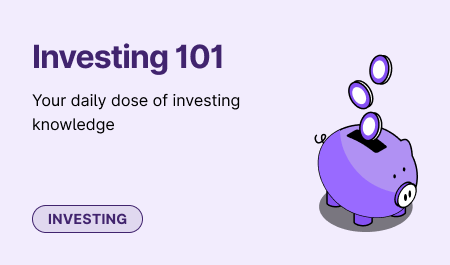Should You Invest in Dividend Yield Fund?

Investing in dividend-yield funds is a popular choice among investors who are looking for regular income and potential capital appreciation. Investing in a dividend-yield fund can be a good investment option for those looking to generate regular income. These funds are focused on investing in companies that have a history of paying dividends.
Before deciding whether to invest in a dividend yield fund, it is important to understand its pros and cons, as well as the factors that can affect the performance of the fund. In this article, we will explore the benefits and drawbacks of investing in dividend-yield funds, and guide you on how to evaluate whether this type of investment is right for you.
What is a Dividend Yield Fund?
Dividend yield funds are mutual funds that invest in companies that pay dividends to their shareholders. These funds are also offering the potential for long-term capital growth. The dividends are usually paid out quarterly, and the amount of the dividend is based on the number of shares held in the fund.
Advantages of Investing in a Dividend Yield Fund
Investing in a dividend yield fund can offer several advantages to investors. Here are some of the key benefits:
-
Steady Income Stream: Dividend yield funds provide investors with a steady source of income through dividends. This can be particularly appealing to retirees or those who are looking for a consistent stream of income.
-
Diversification: Dividend yield funds invest in a wide range of companies across various sectors and industries. This diversification can help to reduce risk and increase the potential for long-term capital growth.
-
Potential for Capital Appreciation: In addition to providing regular income, dividend-yield funds also have the potential for capital appreciation. As companies grow and increase their profits, their stock prices may rise, resulting in higher returns for investors.
-
Tax Benefits: Another advantage of investing in dividend-yield funds is that they offer tax benefits. Dividends are typically taxed at a lower rate than other types of investment income.
-
Professional Management: Dividend yield funds are managed by experienced investment professionals who have the expertise to identify and invest in high-quality, dividend-paying companies.
Risks of Investing in a Dividend Yield Fund
While dividend yield funds offer many advantages, there are some risks involved as well. Since these funds mainly invest in equities and equity instruments with high payout ratios, it may lead to fluctuations because markets tend to fluctuate, leading to variations in returns.
-
Market Risk: Like any investment in the stock market, dividend yield funds are subject to market risk. The value of the fund's assets may decline due to changes in the overall market conditions, economic factors, or geopolitical events.
-
Concentration Risk: Dividend yield funds may have a concentration of holdings in specific sectors or industries. If those sectors or industries experience negative developments, it could lead to a decline in the value of the fund.
-
Interest Rate Risk: Since dividend yield funds often invest in companies that tend to pay high dividends, it can make them sensitive to changes in interest rates. If interest rates rise, it may become more attractive for investors to invest in fixed-income securities, which could lead to a decline in the value of the dividend yield fund.
-
Dividend Risk: There is no guarantee that these companies will continue to pay dividends in the future. If a company reduces or eliminates its dividend payments, it could lead to a decline in the value of the fund.
Factors to Consider Before Investing
Before investing your hard-earned money in a dividend yield fund, a few factors should be weighed carefully.
-
Investment Objectives: Do you want to generate a steady stream of income or are you looking for long-term capital growth? Understanding your investment objectives can help you choose the right fund that aligns with your goals.
-
Risk Tolerance: Dividend yield funds are generally considered to be less risky than individual stocks, but they still carry some level of risk. Evaluate your risk tolerance and ensure that the fund's investment strategy aligns with your risk appetite.
-
Fund Performance: Evaluating key performance indicators and considering factors such as expense ratios, management fees, and historical returns can help you make an informed decision about whether a particular dividend-yield fund is right for you.
-
Fees: Like any investment, dividend yield funds come with fees and expenses that can impact your returns. So, evaluate the fees and expenses associated with the fund, including the expense ratio, front-end or back-end loads, and any other charges.
-
Market Conditions: Dividend yield funds may perform differently under different market conditions. Evaluate the current market conditions and how they may impact the fund's performance.
Conclusion
Investing in dividend-yield funds can be a great way to generate regular income and potential capital appreciation. However, it's important to consider the risks associated with these types of investments and evaluate your own investment objectives and risk tolerance before making a decision.
Always remember that past performance may not guarantee future returns. Thoroughly evaluating these factors while investing in a dividend yield fund, it will ultimately help investors make an informed decision about their investments.